Showing 25 results for:
Women in tech
Popular topics
All results
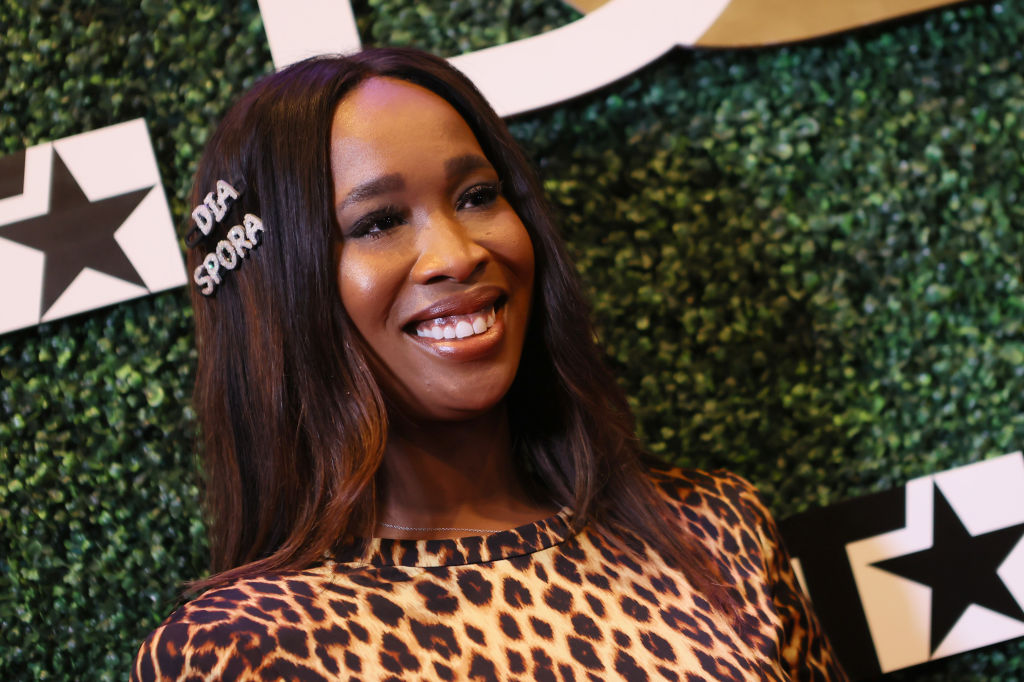
Nowadays, people are more aware that STEM (science, technology, engineering, and mathematics) and STEAM (science, technology, engineering, arts, and mathematics) are not simply the future. Arguably, both are the most important sectors driving economic growth and academic tracks today. From an professional standpoint, both STEM and STEAM are natural segues into the technology industry. With concerns around digital divides and achievement gaps, it is understandable that leaders in the Black community are pushing even harder to ensure that youth and adults, making career pivots have access to opportunity. More importantly, pointing to representation in the tech field gives prospective employees and students choosing academic paths a relatable and attainable goal. Which happens to be the perfect pivot into; currently, women make up 35% of the current tech workforce. This is such a significant improvement from the early 2000’s when women made up approximately 9%. In 2023, women held only...
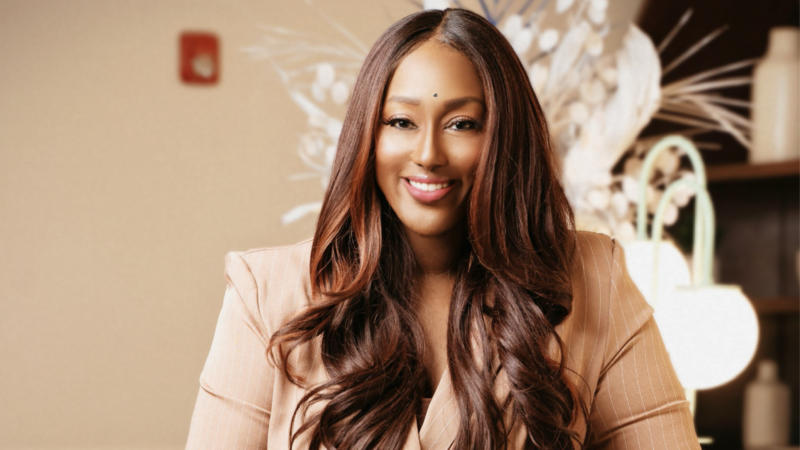
Women in tech now have an added boost thanks to the PRSA Foundation and Mission North. In a press release announcement, it was revealed that the two organizations have teamed up to launch a new program called “The Future Is.” Billed as a program for Black, indigenous, people of color (BIPOC) -identified females interested in the tech industry, “The Future Is” will offer a $15,000 scholarship, a $5,000 stipend and a paid one-month internship with Mission North to a BIPOC female-identifying student interested in tech communications, science communications or digital marketing and design. This is a one-of-a-kind opportunity for women in tech, that’s for sure. “The PR workforce has been long-tasked to become more diverse, and this is a time for organizations to go above and beyond in supporting students of color through financial resources, education and internships who are hoping to enter the industry,” said Aerial Ellis, Ed.D., president of The PRSA Foundation’s Board of Trustees, in...

During our shifting economic climate, AnitaB.org, a nonprofit social enterprise, and Founder Gym, an online program training underrepresented founders on how to build successful companies, both saw the need to provide timely information for women founders. In turn, they created TheStartUp! , a six-part webinar series to provide free information for women founders in need of relevant resources and information to help build and scale their businesses amidst this unique time. The idea behind this collaboration is a culmination of business development and learning opportunities for women technologists and aspiring tech founders. Both companies are thrilled about this new partnership as they contribute their level of expertise in community engagement for women in tech. “Through this partnership, we will foster the development of more women-led startups that are equipped to navigate challenging experiences and overcome turbulent times, to scale world-class, high-impact companies,” shared...
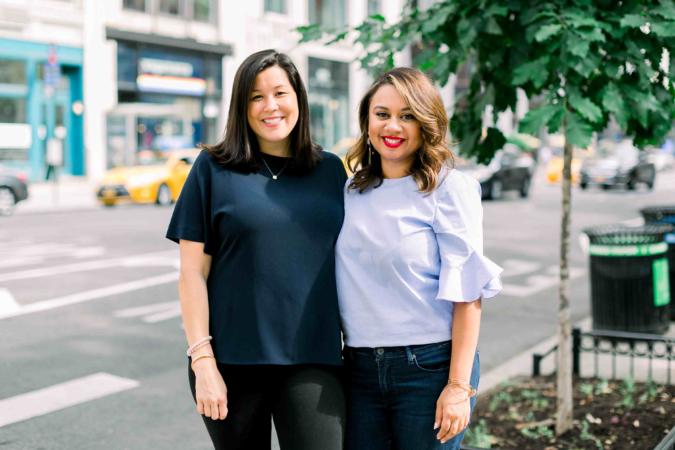
Shine co-founders, Naomi Hirabayashi and Marah Lidey are just two of a small few women of color who have received VC funding — let alone raise over $10 million in venture capital. Embracing their power as unicorns at the intersection of venture capital, wellness, and technology, the dynamic duo is committed to cultivating relatable self-care experiences for a diverse group of people. With a community of four million across 189 countries and an award-winning iOS and Android app, the Shine app provides support around your mental and emotional health. From accessing a community for support and searching a library of audio meditations to listening to a pep talk — the Shine app is your all-in-one self-care companion. While people of color are severely underrepresented in the wellness space, Shine is committed to letting users connect with other Shine members to share tips, motivation, and support from others who are working on being their most authentic selves. Recognized as 2018 Women’s...
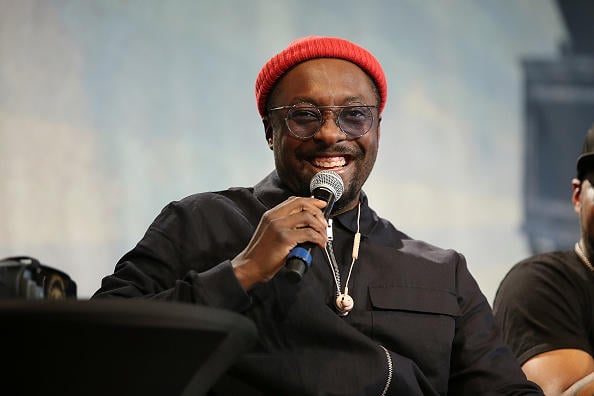
Computer science often seems like a field open only to people who are fully dedicated to computing and mathematics. However, this could not be further from the truth. High-profile celebrities around the world have told their fans that they know how to code and that they also value learning to code . It’s not difficult to understand why these celebrities are interested in programming. After all, coding not only unlocks job opportunities—according to the non-profit Code.org , there are nearly 500,000 “[o]pen computing jobs” in the U.S. alone—but knowing how to code can help you solve problems more effectively. Here’s why these Black celebrities — that you may not have known were into coding — are learning the skill. Serena Williams Joe Scarnici/Getty Images for Apartment List Serena Williams is a professional tennis player who has won 23 major singles titles throughout her career—the most won by any woman or man. Williams holds more Grand Slam titles than any other active player in...
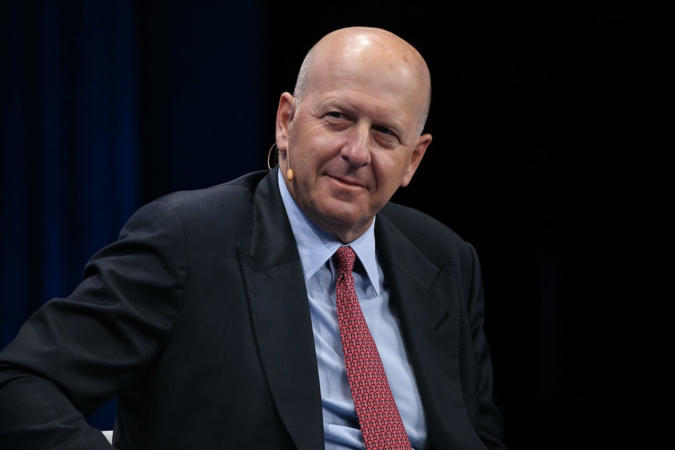
Global investment banking firm, Goldman Sachs, announced via CNBC , that the firm will require companies to have one diverse board member before assisting in going public. “Starting on July 1st in the U.S. and Europe, we’re not going to take a company public unless there’s at least one diverse board candidate, with a focus on women,” Goldman Sachs CEO, David Solomon, told the World Economic Forum. Solomon explained that U.S. companies with a minimum of one female director performed better in the public offering market than companies that didn’t have a female board member. Solomon’s announcement did not specify the details of Goldman Sachs’ new diversity requirement as it relates to women of color. TechCrunch reports it fears women of color will be overlooked in the banking firm’s vague diversity approach. Solomon emphasized his firm’s dedication to diversity and their willingness to pass on companies that do not meet their new diversity requirement. “Look, we might miss some...
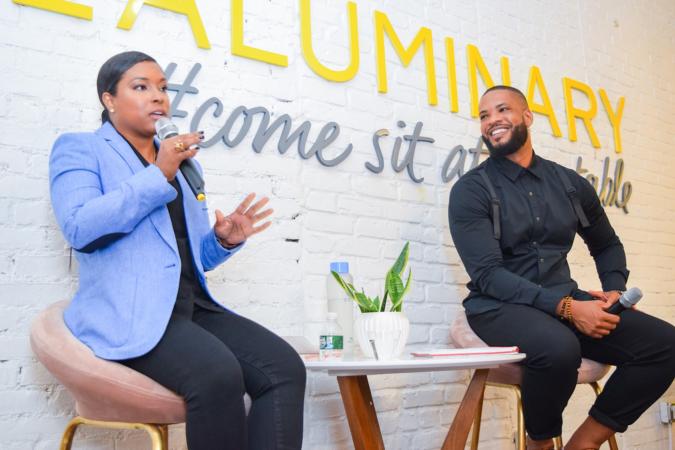
For many women of color, getting into professional settings is only half of the battle. From wage gaps to lack of opportunities for advancement, many women continue to experience combinations of racism and sexism. Although the tech industry is often thought of as a new haven, those same issues can be found here as well. A report by Reveal found that ten large Silicon Valley companies failed to hire any Black women in the year of 2016. It went on to refer to gender and racial disparities as “grave.” Meanwhile, Google’s 2019 Diversity Annual Report found that Black women “were not experiencing Google as positively as other groups.” Often, the advice given to women navigating professional settings ignores how the intersection of race impacts people’s experiences. With her new book, The Memo: What Women of Color Need to Know to Secure a Seat at the Table , Minda Harts sets out to end the one-size-fits-all approach to business books. Minda Harts Book Signing Photo Courtesy: Luminary,...
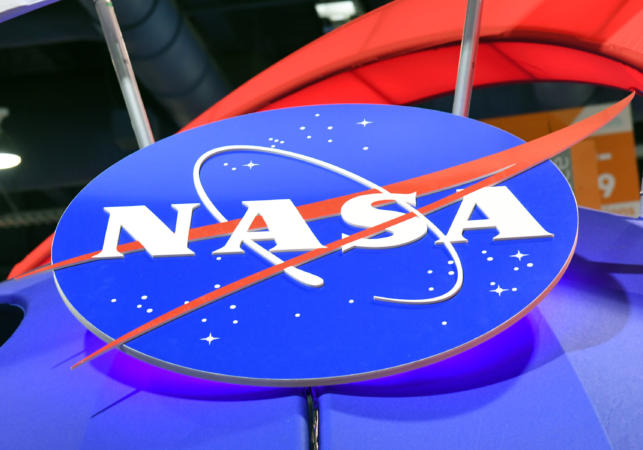
This week President Trump announced that he’s adding $1.6 billion to NASA’s budget so that America can “return to space in a big way.” While more investment in science and space exploration is a good thing, the way the administration plans to go about doing it is raising some concern. On Monday, the administration proposed taking $1.9 billion in Pell Grant surplus dollars to fund a number of different budget priorities, one of which was a fresh jolt of cash for NASA so that the US can return humans to the moon by 2024. The original deadline was 2028. NASA’s budget for 2019 was already at $21.5 billion and this proposal would add $1.6 billion to their 2020 budget. Originally, the president wanted to cut spending for NASA by $500 million. The extra money will also go towards building the Orion capsule, and developing the Space Launch System, the rocket being produced by Boeing that would be used in the moon mission, which we learned this week will be called Artemis, named after the...
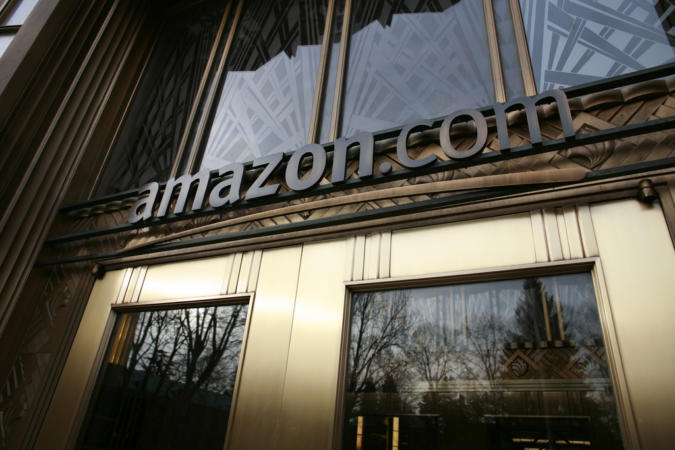
Amazon is helping fund 24 women in the United Kingdom who are interested in tech. The company launched Amazon Amplify, a series of initiatives aimed at assisting underrepresented groups in entering the tech industry. As part of the initiative, Amazon U.K. is also launching Amazon Women in Innovation Bursary, in celebration of International Women’s Day. The grant will fund 24 women, and each participant will receive £130,000 (about $170,000) a year to fund their startup. “Diversity fosters greater innovation and helps raise the bar for customers, and having a diverse workforce is also just the right thing to do,” Fiona McDonnell, Director of Consumer Retail at Amazon, said in a statement. McDonnell also serves as chair of the cross-industry Women in Innovation Advisory Committee. The U.K.’s tech industry has been on a steady climb. According to a report by Tech Nation , 25 percent of the world’s entrepreneurs say that they have two or more relationships in London. From 2014 to 2017,...
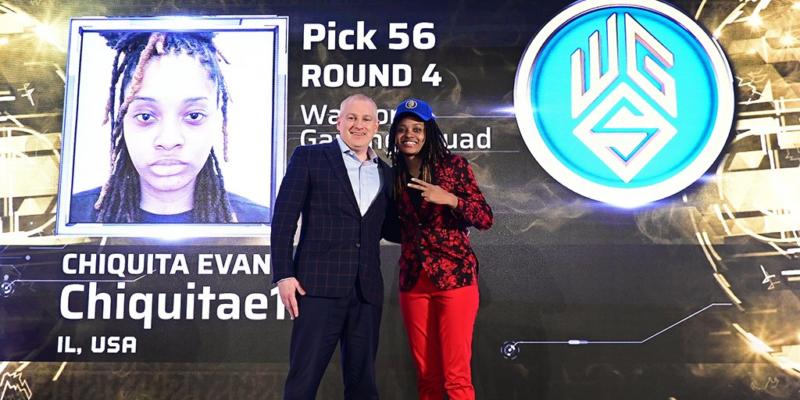
Chiquita Evans is a pro now. This week, she became the first woman gamer ever drafted into NBA 2K’s esports league. She went to Warriors Gaming — the esports team associated with the Golden State Warriors — in the fourth round. Im so blessed and humbled to be apart of a great organization @WarriorsGaming can’t wait to meet everyone… have a great group of teammates @B_SM00VE_JAY @ommtype @Jinsanity_3 @KinaTTG @Gradient__ 💪🏾💪🏾 — Beyond Legendary Quita (@Quita) March 6, 2019 A former semi-pro basketball player, Evans was notified in January that she made the final round of the league’s tryout process and announced her next steps to fans on Twitter. Today is a special day… I turned 25 today, 😂🤣 and I received that best birthday present ever 🤗😊💪🏾💯 thanks everyone who believed in me and supported my dreams I owe you guys everything… ⛹🏽♀️ I love you all #150Bound pic.twitter.com/Wp95DHSXoA — Beyond Legendary Quita (@Quita) January 26, 2019 Women have historically been underrepresented in the...
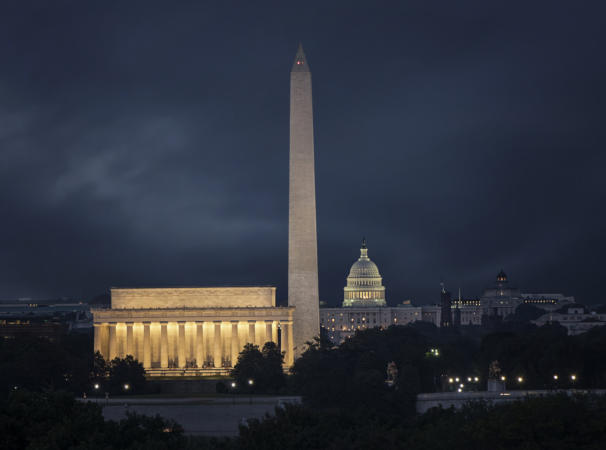
According to a report by SmartAsset, Washington, D.C. is the best city for women in tech. Surrounding cities including Baltimore and Arlington, V.A. also earned places on the list, taking the second and fifth spots. SmartAsset looked at data for cities that have at least 200,000 residents, the percentage of women tech workers in those cities, the average gender pay gaps, and the averages in income after housing to determine which cities were the best. Philadelphia and Houston were named the third and fourth best places for female tech workers. Photo: SmartAsset Washington, D.C. holds the top spot because of the number of women who work in the city’s tech scene and their relatively small gender pay gap. According to the report, women make up nearly 39 percent of the tech workforce in D.C. and are paid 95 percent of what men are. Washington, D.C. and its surrounding cities have had steady growth in the tech industry. Amazon’s move to Crystal City in Arlington is expected to create...

This story originally published on January 31, 2019 Let’s be clear: simply “hitting the numbers” on diversity does not equal authentic inclusion. As a millennial Black woman who works in tech, I understand how it feels to be the “other”–both at work and in my day to day life. The old “excuse” that there aren’t enough candidates of color is no longer cutting it. For years, we’ve worked harder, smarter, and longer to secure a seat at the table. We are here, ready and willing to take the industry by storm; if you’re smart, you’ll do what it takes to garner our expertise at your own companies. Aside from having rich life experiences, marginalized folks are often well-versed in how to navigate obstacles in a special way. We are innovative by nature and have a knack for problem-solving, both of out of necessity and by choice. Full transparency here: I’m speaking from a place of slight privilege. I work for Mayvenn, one of the leading startups in the Bay Area. Mayvenn was founded with the...
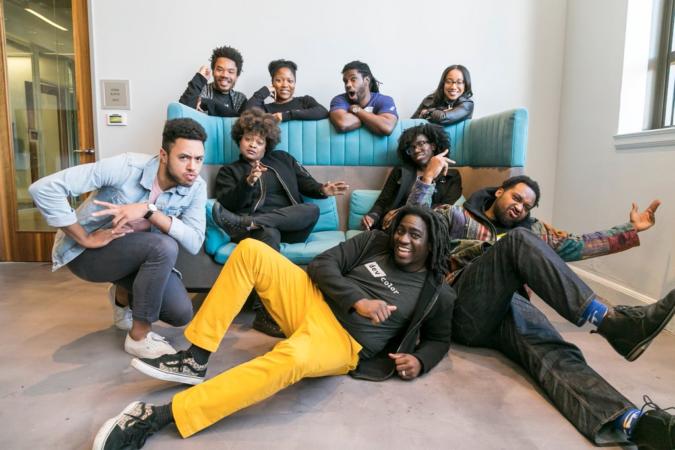
Tech nonprofit /dev/color just announced the induction of the largest “Squad” of Black engineers into their community, growing its membership from 225 to 370. They have also unveiled plans to operate cohorts in two new cities this year. /dev/color convenes a visible force of Black software engineers to uplift and empower one another within the overwhelmingly white tech industry. Nearly four years old, the organization began with just 11 members in San Francisco, and now has chapters in Atlanta, Seattle, and New York City. Their flagship A* program offers professional engineers a year-long membership including monthly meetings with peer groups (called “Squads”), access to exclusive events, and tools to design an individualized career roadmap. “It’s rare for folks to take retention into their own hands,” said Lajuanda Asemota, Interim Executive Director of /dev/color. “It’s not just learning and development opportunities that keep people at companies and in the industry. It’s also...
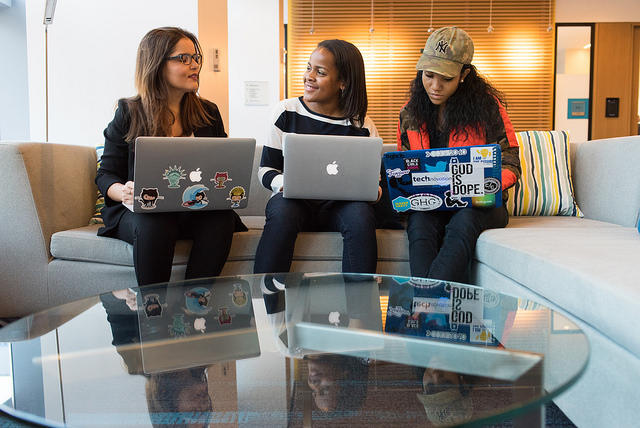
Accelerator program Techstars is bringing underrepresented tech talent together for a weekend of brainstorming and prototyping in New York City. Techstars Startup Weekend is a 54-hour long event for participants of diverse backgrounds to form teams and pitch new business ideas to a panel of judges from the startup and VC industry. Startup Weekend organizers are using the weekend to create a space for women and minority innovators to access resources in the startup world. Through targeting this underrepresented audience, Techstars hopes to address the gaps in funding and opportunity in tech. “Once we bring everyone together and they get to work, we have no doubt that the outcome will be a display of capable and qualified entrepreneurs of all types– with ideas that can shape tomorrow,” they wrote on the event site. Last month, the accelerator announced its partnership with digitalundivided—an entrepreneurship incubator for Black and Latinx women founders—to increase support for women...
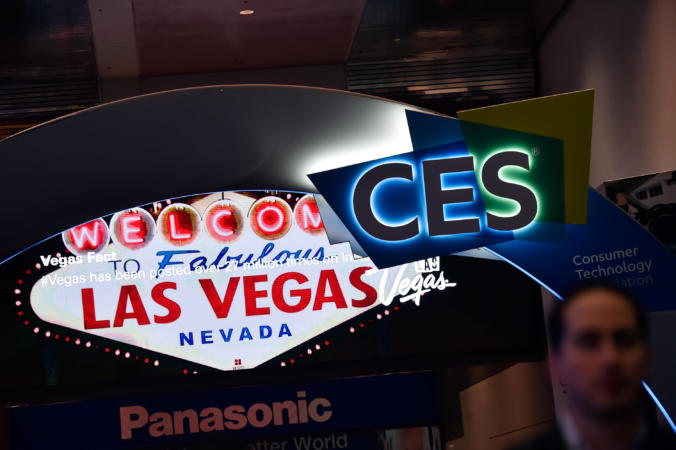
Lora DiCarlo, a women-focused sex-tech company, was supposed to receive an innovation award at this year’s Consumer Electronics Show (CES), but t he Consumer Technology Association (CTA), stripped the company of its award after determining that the company’s Osé robot did not fit into any of the award’s product categories. Lora DiCarlo’s Osé is a hands-free, micro-robotic technology that mimics all of the sensations of a human mouth, tongue, and fingers. “The product referenced does not fit into any of our existing product categories and should not have been accepted for the Innovation Awards Program,” Samantha Doherty, CTA spokeswoman said. “CES does not have a category for sex toys. CTA had communicated this position to Lora DiCarlo nearly two months ago and we have apologized to them for our mistake.” The CTA also cited its rules stating, “Entries deemed by CTA in their sole discretion to be immoral, obscene, indecent, profane or not in keeping with CTA’s image will be...